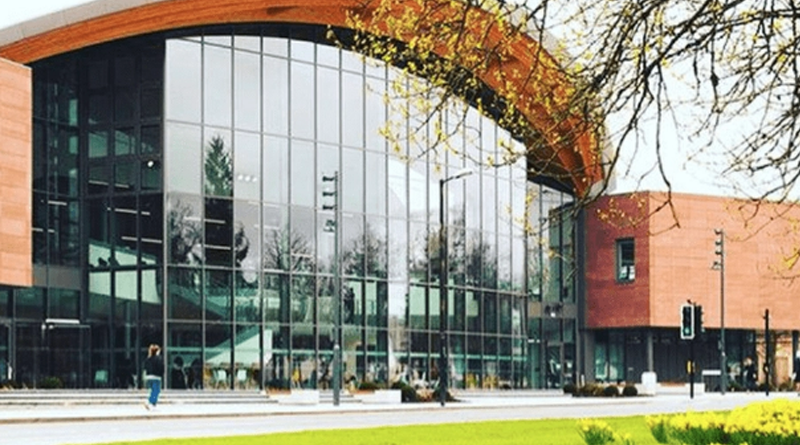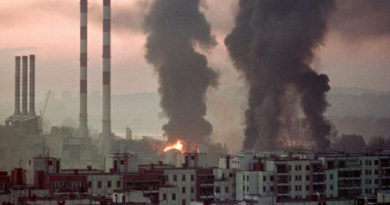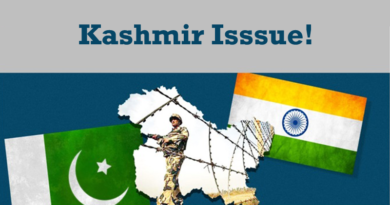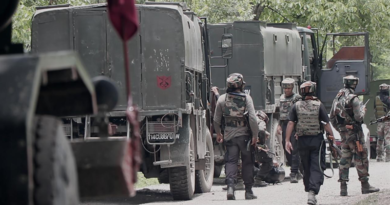Warwick University Presentation
(This is a speech delivered before a student gathering at Warwick University in 2003)
In this short period of time (15-20mts) I will try bring up three points and briefly explain them:
1) Kashmir issue has moved from being a mere truth to a crystal clear fact. As such one only needs to point to it to explain it—–things are so manifest and self-explanatory. In the past, a person in my position here, would have to put in some effort to explain what constitutes the issue of Kashmir. There are books, papers where Kashmir problem has been dealt with. But now we have a concrete situation that expresses the whole truth, all one needs is to look at it without bias or prejudice.
What is the most basic message that emanates from the Kashmir situation? What is the fundamental truth underlying the more-than-a-decade-old tumult? Do people love coming into streets, braving the bullets, killing and getting killed? Is there nothing to life other or more than that? There are so many good things in life, in the human life itself not just in any particular nation’s life, so why should the people of Kashmir take an unusual route? Thousands killed, women dishonoured, houses burnt, people displaced, businesses shattered, why after all should this happen? What makes a people, so to speak, opt for it—-choose a way where this is bound to happen? Let us find an answer to it, and a short answer, but one that sums up the crux of the matter. That single sentence answer is: Kashmiri people have never accepted India’s sovereignty over Kashmir and they want to put an end to it. You may ask now: How come then India has been ruling Kashmir through a democratic set-up? My quick answer to that: all this set-up is a farce, a total sham. Democratic institutions are only a smoke screen, what lies behind is the real power of Indian intelligence and the military forces. The chief minister, cabinet, assembly—-all this is a puppet show. Before this learned audience, I throw a challenge to India to show its ability to rule Kashmir in a cent per cent democratic way.
2) Kashmir struggle has entered a crucial phase with the initiation of dialogue process between India and Pakistan. Viewed in its overall context, the joint declaration by President Musharraf and Prime Minister Vajpayee on the eve of SAARC summit in Islamabad. Kick starting the dialogue process is historic to say the least. I have watched the event very closely, and have some considered thoughts about it. This, however, is not the time or place to dwell on it, I would rather pick up a theme which, I am convinced, needs to pinpointed.
It is often said that India and Pakistan, once they enter into a dialogue, should show flexibility. Well, that is quite natural: dialogue cannot proceed without some sort of flexibility. However, it is not clear what this would mean when it comes to resolving their dispute over Kashmir. If it is Siachin one can understand: the two concerned parties being flexible in sorting it out between themselves, and the third i.e Siachin, remaining neutral, since it is an inanimate entity, does not have its own aspirations or agenda. Kashmir, obviously, is different. It is the question of a people who have to determine their political destiny. In the dialogue process between India and Pakistan, Kashmir occupies an autonomous position—-a position where independent of what India and Pakistan say, it too has to say something. A dialogue on Kashmir must reflect this right from the start. The dominant theme in the political discourse surrounding the dialogue process should be the finding out of the real aspirations of Kashmiri people, and it is with that clearly spelt-out approach that India and Pakistan should start the process of resolving the problem. However, this approach is killed before being adopted, if India and Pakistan start linking very huge stakes with their respective views of a favourable solution of Kashmir. For example, if India approaches the dialogue process by making loud noises( as it has been doing so far, in domestic as well as in foreign audiences) that India will break up if Kashmir cedes, and that Kashmir is the cornerstone of its secular fabric. This, I must emphasize, is a politically motivated exercise of scare mongering meant to scare the world of the dreadful consequences of instability and perpetual conflict, should the inevitable happen. India should look for more sensible ways of proving what it calls its secular, composite fabric. Pakistan also should not consider Kashmir’s accession with it as proof of its foundational principle. There is hardly a proof needed for something which is doctrinally well founded and practically so well-proven:
Islam continued to be the organizing principle of the state right from the time Muslims established the first state under the leadership of the Prophet(SAAW) in Medinah in 7th century A.D till as late as the dismemberment of Ottaman caliphate in the twentieth. Pakistan (the different peoples constituting it), did not invent a new principle for its emergence the truth of which now hinges on Kashmir’s accession with it; the principle was already there, in theory as well as practice, Pakistan only faithfully followed it. If Kashmiri people also do, well and good, if not , that won’t weaken the principle or a particular embodiment of it(in this case Pakistan), but will only reflect on the people’s conduct and political behaviour. After all the separation of East Pakistan could not have a snow-balling effect on the rest of the country: Pakistan (West Pakistan) did not disintegrate further and the ethnic/nationalistic forces in various provinces did not increase phenomenally. On the contrary, if the 2002 elections to National Assembly are any indication, these forces are on a sharp decline.
3) The last point I want to take up, is about the real aspirations of Kashmiri people. What do they aspire for, and why it should be taken into account?
There is a deep sense of historically built-up deprivation among Kashmiri people. Kashmir has witnessed long spells of tyrannical rule, the latest being the one by Dogras which lasted till 1947. It has been thoroughly documented, and I hardly need to expand on it how heavily the Muslims of Kashmir have suffered under these tyrannical regimes. As the colonial empires started withering away, the subjugated people everywhere began dreaming of their post-colonial futures. Kashmir was no exception. The earliest political formations, that started taking shape in Kashmir in late nineteen twenties, had clear political agendas. There was a movement everywhere, the people under British India were organizing themselves and debating their post-colonial future. Muslim imagination had got a boost with the idea of Pakistan. Democratic choices were being made: the overwhelming majority of Indian Muslims formally voted for Pakistan. Special referendums were held to ascertain the wishes of the people of Sylhet in east and North west frontier, who too voted for Pakistan. After the long nights of deprivation and suffering Kashmiris were also eagerly looking for a dawn of democratic choice. The Dogra monarchy had got to end anyway, Kashmiris were hoping to choose a future now. But unfortunately things did not move that way, and if they had we would not have been debating the problem this evening. The Dogra rule ended, but what replaced it was once again an imposed rule. The dream of a free and conscious choice eluded once again. That is what I call historically built-up sense of deprivation: Kashmiri people having been denied, by sheer fraud and force, the opportunity to freely choose their political future. In practical terms, at least, that is the Kashmir issue: allow the people to determine their political future, and once you have done that you have resolved the issue. This is what the oftmentioned resolutions of the United Nations Security Council say. So, this evening when we are debating ‘Kashmir the way forward’, I would say the only way forward is to allow Kashmiris express themselves. I would also add regarding the mechanism of it, that every adult Kashmiri man and woman should directly make a choice by casting vote in a free and fair referendum. I disagree with the proposition, that the wishes of Kashmiri people should be ascertained through the political leadership in Kashmir, by which is meant the All Party Hurriet Conference. Without going into details, and without talking about particular persons or groups, I would say with some emphasis that a direct reference to Kashmiri people —as opposed to an indirect one— is the only right way of ascertaining the wishes of Kashmiri people.
I have said what essentially I had to, but I cannot end my talk without striking a note of caution. There has been a lot of movement. With regard to Kashmir problem we have come a long way. There have been sacrifices of enormous magnitude by the people of Kashmir. India and Pakistan are talking about lasting peace, and a tension-free sub continent. But let us remember that peace is not a matter of wish; concrete steps are required for it. We can easily miss the bus of peace, if the real aspirations and wishes of Kashmiri people are not properly ascertained or if they are not given due consideration. Let us not miss the point that Kashmir issue, substantially, is a matter relating to honour and dignity, and such issues, as history bears witness, matter far more in the lives of individuals and nations than the matters of bread and butter. If once again Kashmiri people are sabotaged, I put this on record before you, that there can be no lasting peace. There might be some sort of peace, for some people and for some period of time, but it cannot last. Lasting peace can only be achieved on the basis of a just solution, not at the cost of it, in which case it will only be a façade of peace. People as a whole will feel cheated and let down. They will devise their own ways to rectify the wrong, and the process will go on. History teaches us that matters relating to honour and dignity have an incredible potential to inspire right men and women across time and space. If Kashmiri people are wronged against once again, a new breed of combatants(those ordinary mortals who do not accept their surrounding despicable situation as a fait accompli but rise up to change it) will emerge, who will take up the pending mission, and no one can stop this from happening: history does not accept managers and tight controls, it has its own nature and remains true to that. Let me share some real historical examples with you. You know there were people who stood up against Dogra rule, some were martyred, some jailed. Even now we commemorate 13th July 1931 to honour those who were martyred on that day. Not necessarily linked by blood with the earlier ones, yet again we see a number of people and groups emerging to challenge India’s occupation of Kashmir well before 1989(the year when the present uprising started) and throughout all those years right from 1947. Indian rulers arrested and killed the persons, but the process could never be arrested. Look at me, I was doing a Ph.D. in the beautiful Indian city of Pune. A young Kashmiri man, namely, Shiekh Tajammul-Islam, advocate by profession raised the slogan of Kashmir’s freedom from India. It was a period of relative political lull following Indira-Shaikh accord in 1975. Tajammul’s call created a huge excitement, and so many young souls like myself rallied around it. Some young man, perhaps a teenager, somewhere, fired a single shot in 1989, and you have the whole population of Kashmir on streets chanting the slogans of freedom from India. The point I want to drive home, is that the questions of honour and dignity, truth and justice have an inherently huge potential to energise and galvanise human souls. It is this potential that creates movements, and those in power taking a narrow view of history, use brute force to crush the movement. If they succeed in that, the matter does not end: you may have controlled something now, only to see that it erupts later, and often with added ferocity.
Thank you very much for your patient hearing.
Dr Syed M Inayatullah Andrabi
Convenor-in-exile,
Mahazi-Islami, Occupied Kashmir
***
Dr. Syed M Inayatullah Andrabi is a well-known figure in the circles of political Islam. Born in Srinagar, the capital city of Indian Held Kashmir, Dr Andrabi has been intimately involved at the intellectual level with the global politics and political issues since his student days in 1980 at Pune (India), where he completed his Ph.D. in Linguistics in 1983 at the Centre of Advanced Study in Linguistics, Deccan College, University of Pune, Pune, India. Upon completing his doctorate he returned home to join the University of Kashmir, first on a post-doctoral fellowship and later as faculty, but could not continue because of the deteriorating security situation in Kashmir, and had to move to United Kingdom in 1994 where he continues to live since along with his wife and five children.




